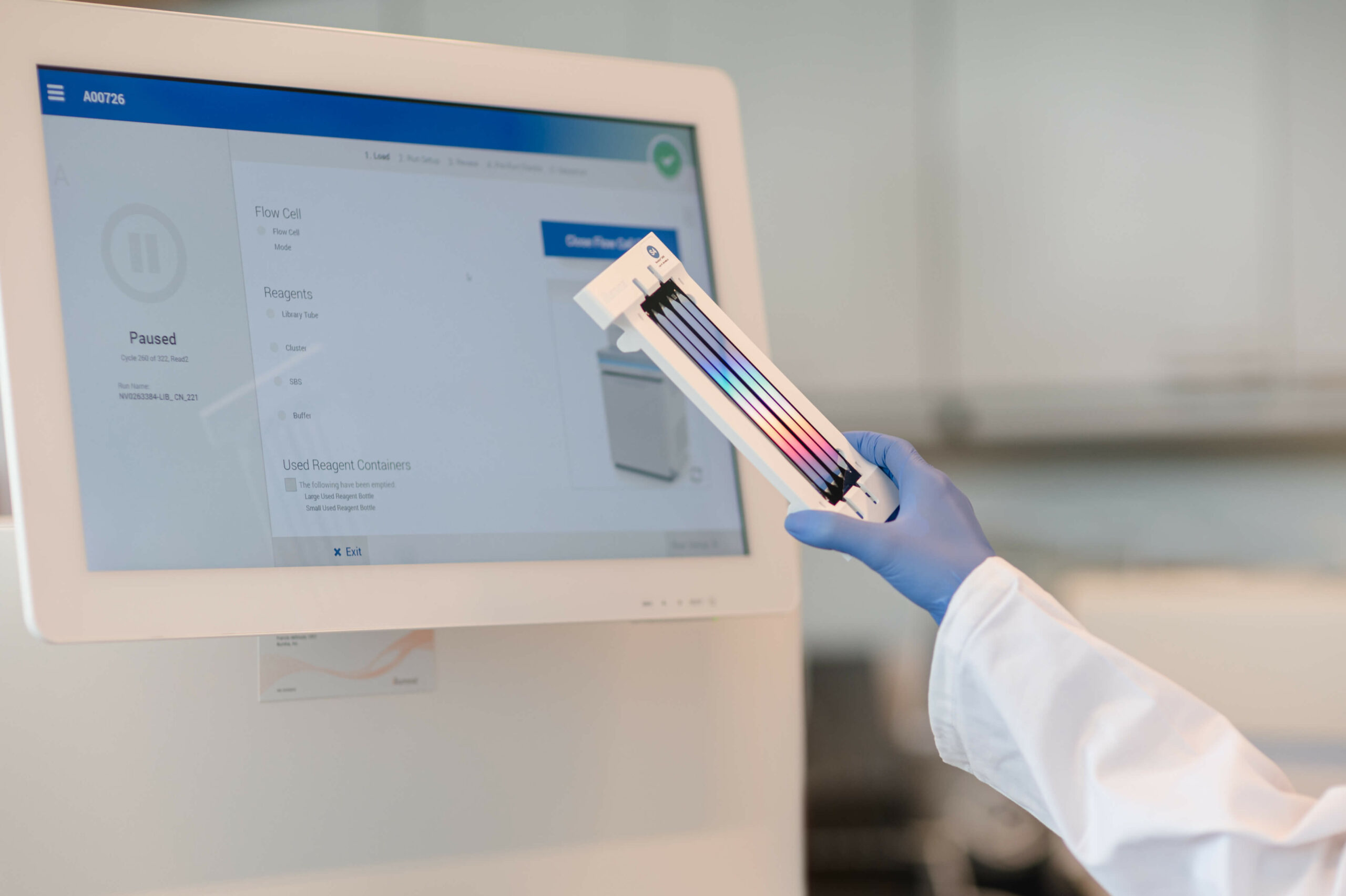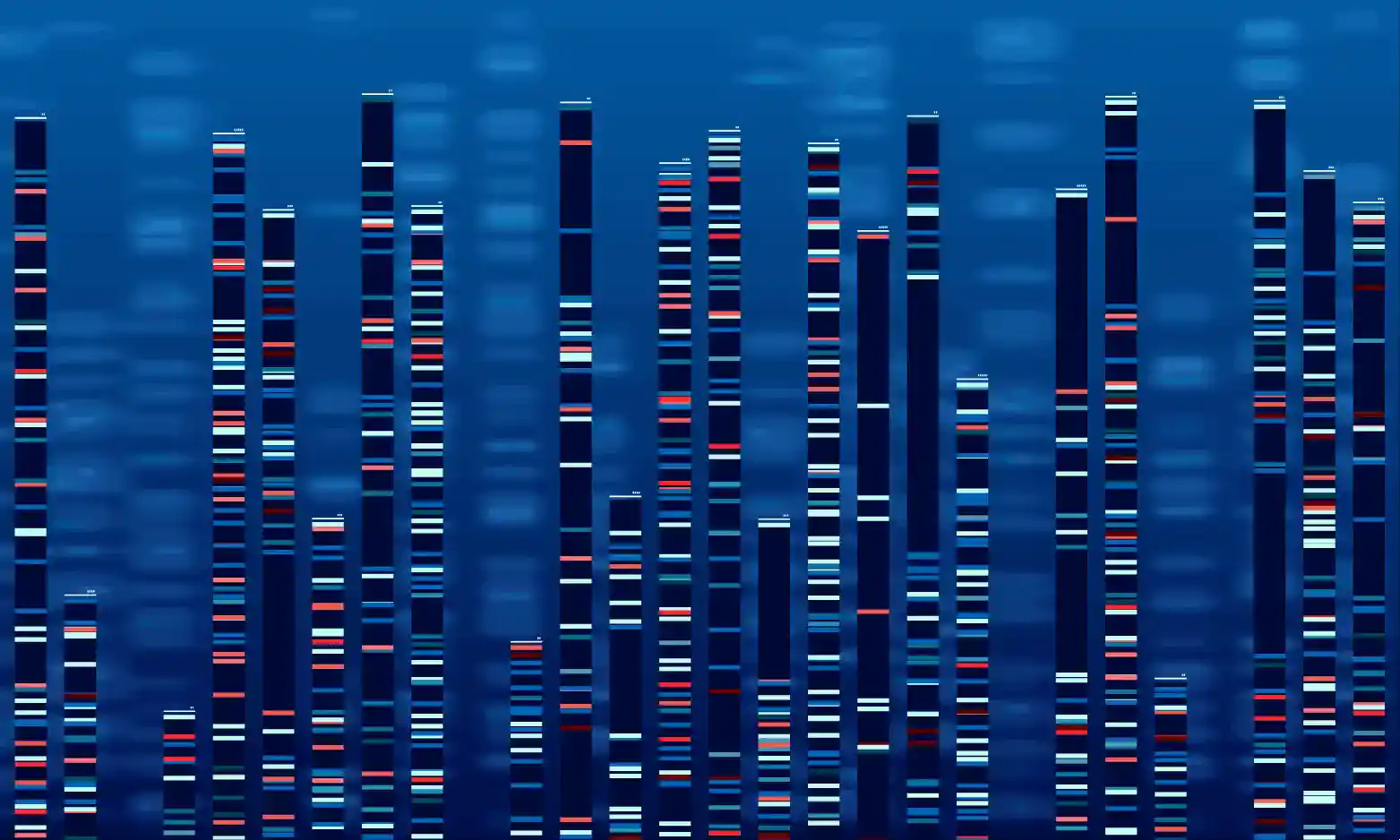OVERVIEW
Whole exome sequencing (WES) is a comprehensive genetic test which analyzes the protein-coding regions (exons) of all human genes (~20,000 genes). The sum of all the exons is called an exome. The human exome contains ~85% of known disease-related variants. The remaining 15% of disease-causing variants are located within introns (non-coding regions). Decode&Discover is designed to detect the exome variants, as well as the intronic variants. All of these variants can change the function of the underlying DNA sequence, thereby causing disease.

IMPORTANCE OF GETTING TESTED
WES offers a simultaneous analysis of a large number of genes. It substantially increases the chances of finding the genetic cause of diseases with complex and non-specific symptoms. WES reduces the time and cost from symptom presentation to diagnosis, and has an increased diagnostic yield. The results may provide information about the recurrence risk (chance of having another child with a similar condition) and may also be useful for other family members.

Patients with a
complicated medical
history that affects
many organs

Patients who have
undergone previous
genetic testing with
inconclusive results

Patients with complex,
non-specific symptoms
with multiple differential
diagnoses

Patients with a
severe presentation
in the neonatal or
childhood period
OUR TEST OPTIONS
Trio WES is the most commonly performed analysis providing comprehensive results with the highest diagnostic yield. In cases where only one or no biological parent is available for testing, we can perform Duo WES or Single WES respectively. Trio WES allows simultaneous analysis for all modes of inheritance and can ascertain the significance of clinically relevant variants.
2 mL EDTA blood, amnio fluid, FFPE tissue, dried blood spots or DNA
DNA: minimum 10ng/µL in 50µL volume
DNA is isolated and next generation sequencing is performed on all coding exons and conserved intronic regions. Single base pair changes, small deletions and duplications and copy number variants (CNV) are identified. Variant classification is performed following ACMG guidelines (Richards et al. 2015, Genet Med 17:405; Kearney et al. 2011, Genet Med 13:680).
NGS Illumina NovaSeq Systems
2×150 bp (300 cycles)
>99% protein coding genes including conserved splice regions
36.6 Mb
99.92%
Up to 20 bp
10 bp into flanking introns
+/-8 bp
Mean coverage 100X
97% of bases with minimum coverage 20X
GRCh38
ACMG guidelines

POSSIBLE OUTCOMES OF THE TEST
A molecular genetic diagnostic report outlining the results of the sequencing analysis is provided.
Pathogenic and likely pathogenic variants: the genetic cause of the observed symptoms has been identified and may help determine the right treatment and management plan.
Variants of unknown significance (VUS): there was not enough evidence to classify the variant as either pathogenic or neutral. However, future information may connect the variant with the patient’s symptoms. If new information becomes available, the meaning of the results may change for the patient and their relatives (and they will be notified). Annual variant reclassification and testing family members is recommended.
Incidental findings: genetic changes that are not associated with the patient’s current condition may be discovered which may be medically important and will be automatically included in the report unless they are associated with adult-onset disorders for which there are no interventions available.
Secondary findings: genetic changes that are not associated with the patient’s current condition, which have been defined by the American College of Medical Genetics as medically important. The patient or legal guardian must consent to the reporting of these results.
It is important to note that a negative result does not guarantee the absence of a disorder or that the disorder does not have a genetic cause. Additional knowledge may become available that could explain the underlying cause of the symptoms.
MEDICAL GENETIC COUNSELLING
We provide expert medical genetic counselling as part of a genetic testing journey. Genetic counselling is a process of communication that supports patients and their relatives before and after genetic testing. It is educational, impartial and nondirective. Prior to any genetic test, genetic counsellors will obtain a detailed family history, explain the method of testing that will be used, its risks and benefits, the limitations of the diagnosis and the implications of making a genetic diagnosis (Elliott and Friedman, 2018, Nat Rev Genet 19:735).
Upon receiving the genetic test results, genetic counselling can help the specialist physician and the patient to interpret them. They can be advised of the consequences of the results including the probability of developing the genetic disorder or passing it on to children, as well as ways to prevent, avoid or reduce these risks (Yang and Kim, 2018, Ann Lab Med 38:291). Our goal of counselling is to provide the patient with greater knowledge and thus, a better understanding of the results and the ability to make a more informed decision.

BLOG ARTICLES





















